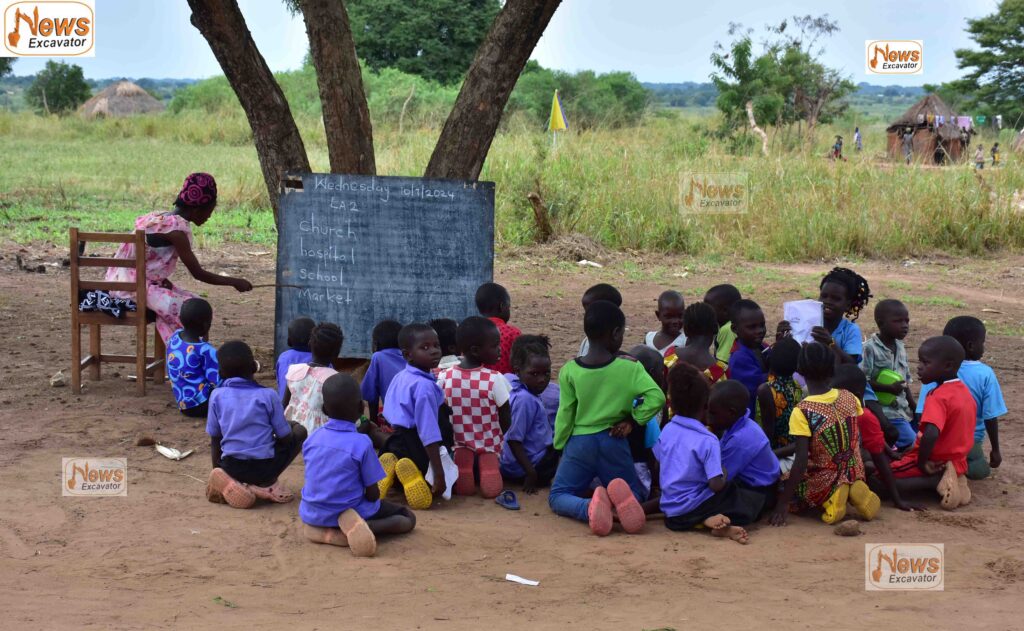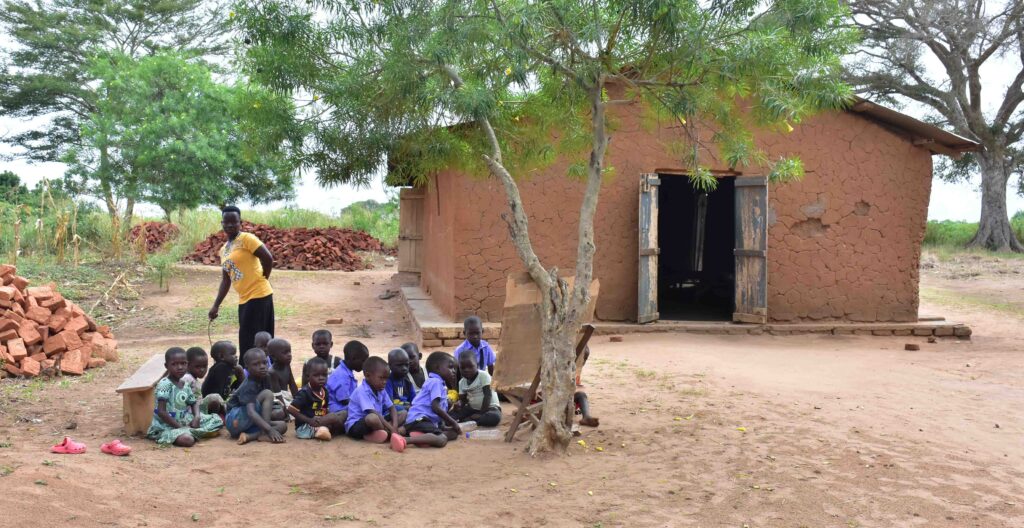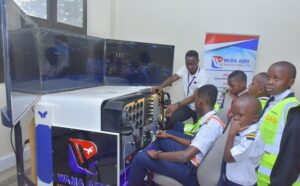
Children Studying under a tree in Buliisa district
By Stuart Lubwama- The Mwalimu
Education is the foundation of National Development, yet Uganda’s public education system continues to struggle with accessibility, funding, and quality. The government’s recent move to centralise the collection of school fees through the Uganda Revenue Authority (URA) has sparked widespread criticism, as it contradicts the promise of free education and introduces bureaucratic inefficiencies.
Meanwhile, the National Unity Platform (NUP) offers an alternative approach that prioritises equitable access, curriculum reform, and increased education financing. This article critically examines the failures of the current system and explores NUP’s Vision for a better education future.
Contradictions and Failures of Centralised Fees Collection
The Ugandan government claims to provide free Primary and Secondary education through Universal Primary Education (UPE) and Universal Secondary Education (USE) respectively. However, the reality is that many government-aided schools continue to charge fees, forcing parents to bear additional financial burdens. The centralisation of school fees collection is problematic for several reasons:
a) Legal Contradictions: The Right to Free Education
Uganda’s legal framework guarantees free and compulsory education. Article 30 of the 1995 Constitution states that; “All persons have a Right to Education.” Article 34(2) also states; “A child is entitled to basic education, which shall be the responsibility of the State and the parents of the child.”
Objective XVIII (i) of the National Objectives and Directive Principles of State Policy states; “The State shall promote free and compulsory basic education.”
Despite these constitutional provisions, the government’s policy on fee collection suggests that education is not truly free. By allowing schools to charge fees and formalising this process through URA, the government is violating its own commitments.
b) Bureaucratic Inefficiencies and Financial Risks
The move to centralise school fees through URA introduces unnecessary bureaucracy that may worsen school funding issues. Schools rely on timely fee collections to pay for essential services such as teacher salaries, utilities, and teaching materials.
Delays in Fund Disbursement: Schools will depend on the government to release funds, which could lead to delays and financial strain.
Loss of Financial Autonomy: Schools will no longer control their funds, making it difficult to respond to urgent needs.
Increased Corruption Risks: Centralised financial systems in Uganda have often led to mismanagement and corruption, as seen in other sectors.
c) The Impact on Students and Parents
High education costs have already led to low school enrollment and high dropout rates. Studies indicate that in Uganda, parents in several government schools pay up to UGX 2.3 million – UGX 3 million per term despite the government’s claim of free education.

In sub-Saharan Africa, 54% of households prioritise school fees over medical expenses, highlighting the burden of education costs. Countries that have successfully implemented free education, such as Kenya and Rwanda, have seen improved literacy rates and school completion rates.
Rather than centralising fee collection, Uganda should focus on making public education truly free and increasing direct funding to schools.
NUP’s Alternative Approach to Education Reform
The National Unity Platform (NUP) presents a bold and people-centered approach to education reform. Rooted in the party’s 2021–2026 manifesto, NUP’s vision seeks to create a system that is accessible, high-quality, and relevant to national development.
a) Free and Equitable Access to Education
NUP acknowledges that true progress requires the elimination of financial barriers to education. The party’s key goals include; Abolishing school fees and all hidden charges to make education genuinely free, addressing regional and gender disparities to ensure that all children, regardless of background, have equal opportunities and investing in school infrastructure to improve learning environments in rural and underprivileged communities.
b) Comprehensive Curriculum Reform
Uganda’s education system has long been criticized for being too theoretical and outdated. NUP proposes:
Introducing a skills-based curriculum that emphasizes vocational training, critical thinking, and entrepreneurship. We are also committed at making ICT and digital literacy a core part of education to prepare students for the modern job market as well as integrating civic education and leadership training to create a politically aware and responsible citizenry.
c) Improving Teacher Welfare and Professional Development
A well-motivated and trained teaching workforce is essential for quality education. NUP pledges to:
Increase teacher salaries and ensure timely payments to improve morale and retention, provide continuous professional development programs to equip teachers with modern instructional techniques and reduce the pupil-to-teacher ratio by recruiting more educators and reducing classroom congestion.
d) Increased Budget Allocation to Education
NUP argues that Uganda’s education sector is underfunded and calls for a substantial increase in budgetary allocation. The party plans to:
Reallocate funds from non-essential government expenditures (such as excessive political spending) to support education. Also, to strengthen transparency in education financing to prevent corruption and ensure that funds reach schools.
Provide direct school grants instead of collecting fees from parents, ensuring sustainable and predictable funding.
Lessons from Success Stories Elsewhere
Several African nations have demonstrated that free education is possible with the right policies. Kenya introduced free primary education in 2003 and has since expanded funding to public secondary schools.
Rwanda implemented a nine-year free education program, leading to increased enrollment and improved literacy rates.
Ghana launched the Free Senior High School (SHS) policy, which covers tuition, meals, and learning materials for all students.
Uganda must therefore, learn from these models and make strategic investments in its education system rather than shifting financial burdens to parents.
A Call for True Education Reform
The Ugandan government’s move to centralise school fees collection is a step in the wrong direction. Instead of increasing transparency and efficiency, it institutionalises fees in public schools, contradicting constitutional guarantees of free education. Bureaucratic delays, financial mismanagement, and the deepening of economic disparities will only worsen under this model.
NUP’s alternative approach presents a viable and people-centered solution. By abolishing fees, reforming the curriculum, improving teacher welfare, and increasing education financing, Uganda can build a stronger, fairer education system. True education reform requires commitment to accessibility, quality, and national development—not financial policies that punish struggling families.
It is time for Uganda to move beyond rhetoric and take concrete steps toward a truly free and equitable education system. If other African nations can do it, so can we.
STUART LUBWAMA- The Mwalimu
NUP Chairperson Kunga in Wakiso District and Member of Parliament aspirant for Entebbe Municipality






